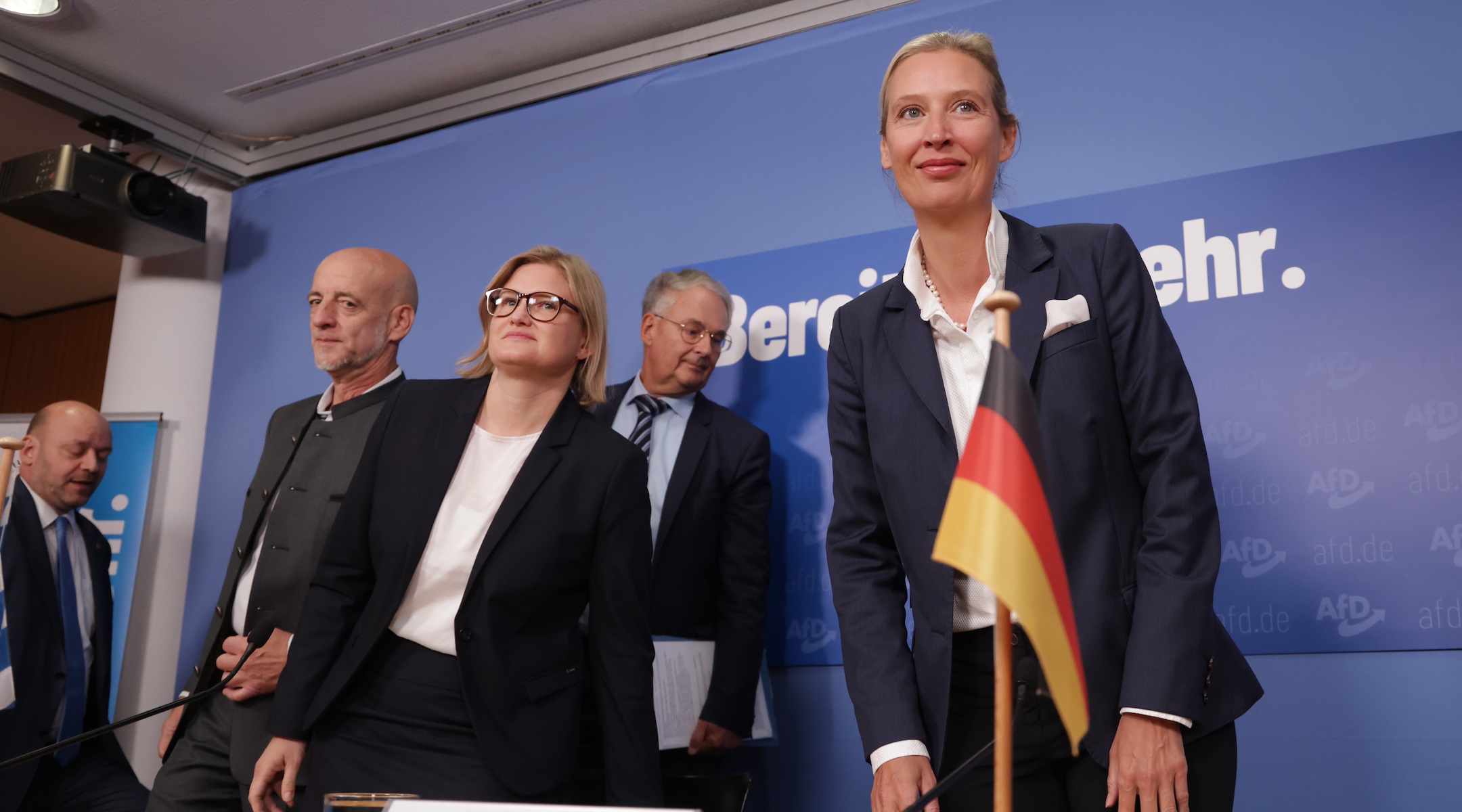(JTA) — Jewish leaders expressed concern after the far-right Alternative for Germany party, or AfD, made major strides in two state elections this weekend, coming in at third place in Bavaria and second place in Hesse.
The results brought the party closer than ever to power-sharing in both states, though mainstream parties have vowed never to build coalitions with the anti-European and anti-immigrant party.
In Bavaria, Jewish community president Charlotte Knobloch said the election result, which would land 35 AfD representatives in the state legislature out of a total of 180, would “place a heavy burden on the work in the new state parliament; minorities such as the Jewish community will be further unsettled.”
But in congratulating Christian Social Union party leader Markus Söder on his overall win, Knobloch said she was confident his government would “continue the fight against extremism using all means possible.”
Since it was founded in 2013, the AfD has steadily grown in popularity, fed in part by popular anger at former Chancellor Angela Merkel’s liberal policy towards accepting refugees. Some leaders of the party, which also supports Russia in its war against Ukraine, are known for having made comments belittling the Holocaust.
Theories that the AfD has more support in former East German states than in the country’s west have recently been debunked by recent opinion polls: According to nationwide surveys, the party now ranks second in overall support next to the mainstream conservative Christian Democratic Union and its Bavarian sister party, the Christian Social Union.
In Hesse, the CDU earned 34.6% on Sunday, followed by the AfD with about 18.4%. The AfD will gain 9 seats in the Hesse parliament, for a total of 28 representatives in the 133-member body.
In Bavaria, the CSU came in first with just under 37%, followed by the center-right Free Voters party with 15.8%, and the AfD with 14.6%.
As usual, when no one party earns over 50%, a coalition government will be built.
In a celebratory mood after Sunday’s elections, AfD leader Stefan Marzischewski said that the results showed the party was “in the fast lane in the former West German states.”
Central Council of Jews in Germany President Josef Schuster said he was “very worried” about the popularity of the AfD in an interview published Sunday in the Berliner Zeitung newspaper. He said he would seriously think of packing his proverbial “suitcase in the attic” if the party were to be part of a governing coalition in any German state.
JTA has documented Jewish history in real-time for over a century. Keep our journalism strong by joining us in supporting independent, award-winning reporting.






